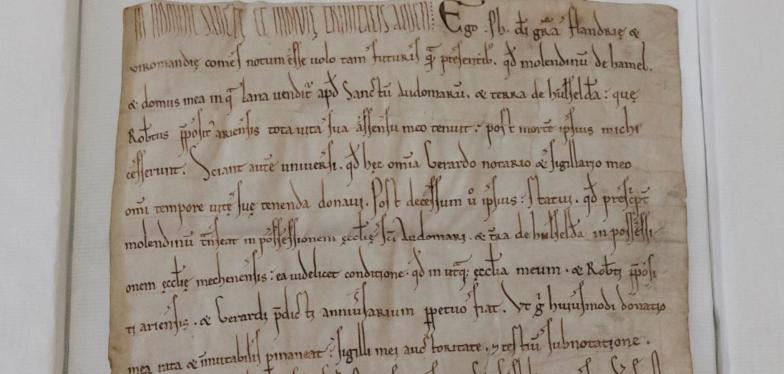Charter of Philip of Alsace back where it belongs

After 100 years, the 12th-century charter of Count of Flanders Philip of Alsace (1142-1191) has returned home. It's a miracle that it was not permanently lost.
Messines is the smallest city in Belgium but it has a huge past. It was here, of all places, that Adela of Messines founded the first women's convent in Flanders in 1057, shortly thereafter elevated to an abbey. Messines was an excellent location for the efficient transport of goods by water and land to the trading centres in the Scheldt Basin. Gifts and donations were received regularly, sealed with parchment charters. In 1176, for example, Adela's great-grandson, Count Philip of Alsace, donated a plot of land in Westvleteren to the abbey in exchange for a promise that a memorial mass would be celebrated in perpetuity for his salvation. Gradually, the abbey created a rich archive.
In 1914, the Germans took Messines and, thereafter, allied shelling razed the town, abbey included, to the ground. When German soldiers left for home, they took records found in the rubble as souvenirs of the war. An American collector tracked down the charter of Philip of Alsace and donated it to the Metropolitan Museum in New York in 1923, where it unexpectedly surfaced in 2016.
As 'war booty', however, this item of great historical value belongs to the Belgian state. It was recently handed over to the Belgian authorities with much ceremony. Anyone interested can consult it at the State Archives of Bruges.